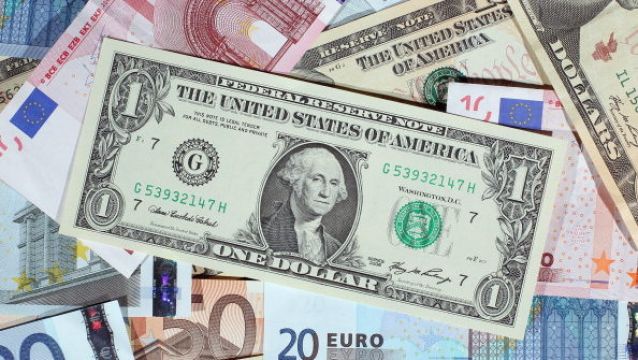The euro dropped below parity against the dollar the first time in almost two decades on Wednesday, as a hawkish US Federal Reserve and growing concern about rising recession risks in the euro area continued to batter the single currency.
The euro started this year on a strong note given a post-pandemic economic recovery. But the war between Russia and Ukraine, surging European gas prices and fears that Moscow could cut off supplies completely have hurt the single currency by raising the spectre of recession.
US inflation
On a monthly basis, prices rose 1.3 per cent from May to June, another substantial increase, after prices had jumped 1 per cent from April to May.
Some economists have held out hope that inflation might be reaching or nearing a short-term peak.
Fuel prices, for example, have fallen from the eye-watering $5 a gallon reached in mid-June to an average of $4.63 nationwide on Wednesday — still far higher than a year ago but a drop that could help slow inflation for July and possibly August.
The relentless spike in inflation has diminished consumers’ confidence in the economy, sent US president Joe Biden’s approval ratings tumbling and posed a major political threat to Democrats in the November congressional elections.
Interest rate rise
The US central bank is expected to raise its key short-term rate later this month by a hefty three-quarters of a point, as it did last month, with potentially more large rate hikes to follow.
Mr Powell has stressed that the central bank wants to see “compelling evidence” that inflation is slowing before it would dial back its rate hikes.
Such evidence would need to be a “series of declining monthly inflation readings,” Mr Powell said at a news conference last month.
Many economists worry that the Fed’s drive to quell inflation will cause it to tighten credit too aggressively even while the economy, by some measures, is slowing. Much higher borrowing costs could trigger a recession, potentially by next year.
Consumers have started to pull back on spending, home sales are falling as mortgage rates rise and factory output slipped in May. Yet steadily robust job growth points to an economy that is still expanding, with little sign of an imminent recession.
Though inflation may slow later this year, it is not clear by how much. Oil prices fell on Tuesday to about 96 dollars a barrel. And other commodities, including metals such as copper, have also become less expensive, mostly because of recession fears in both the United States and Europe.
With fewer ships stuck at the Port of Los Angeles and Long Beach, America’s largest, shipping costs for international freight have fallen. - Reuters/PA







